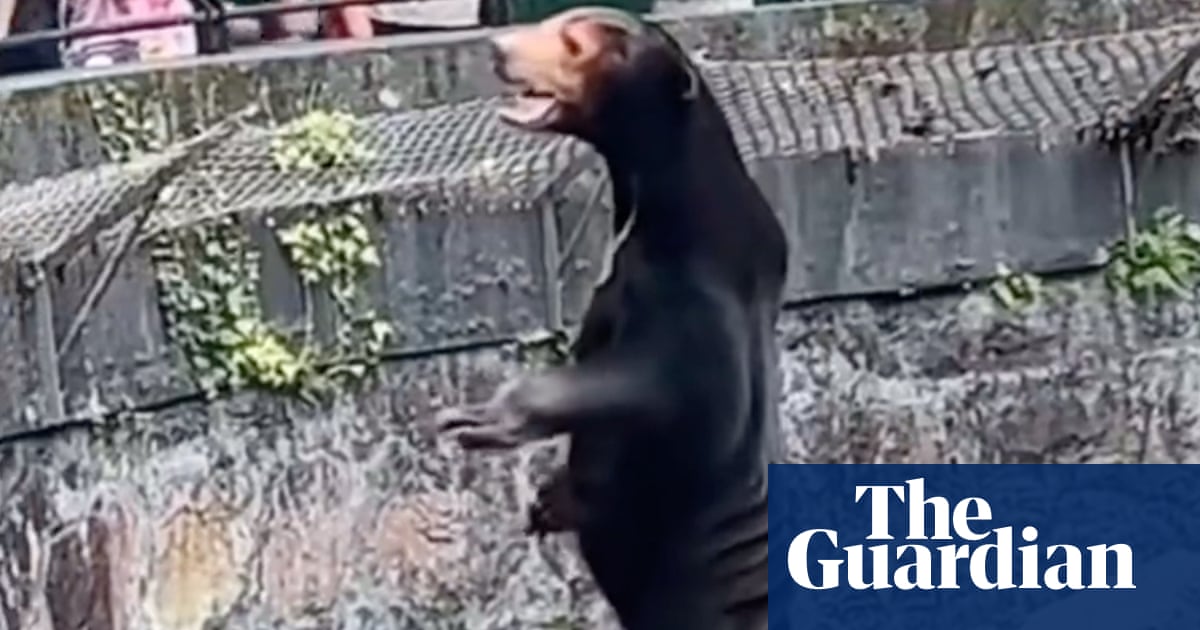
Visitors have flocked to a zoo in eastern China’s Zhejiang province after a video of one of its bears went viral with some suggesting she looked so human she could be a staff member in a bear suit.
Attendance numbers at Hangzhou zoo have risen by 30% to about 20,000 a day, with some people travelling overnight, since a video of the Malayan sun bear, named Angela, became a trending topic on Chinese social media over the weekend, Zhejiang-based Chao News reported.
“After seeing this bear standing up on the internet, I wanted to see how it looks in real life, so I came here,” said a man surnamed You, who said he had only half-believed the video he saw online, Chao News reported.
“After we saw the video on the internet, we specially took the high-speed train from Suzhou to come over to see the bear,” another visitor, Qian Ming, told a Hangzhou TV station. “We travelled overnight last night to get here. The bears are so cute.“
In the widely shared video posted last Thursday, the bear can be seen standing on its hind legs and stretching its neck out as it faces visitors watching from outside its enclosure, before sitting back down.
It was when Angela was standing up that some internet users said she looked like someone wearing a bear suit.
“If this is fake it deserves an Oscar for special effects,” said one user on the Weibo microblog platform.
The zoo has sought to refute the rumour in posts on its official WeChat account and in interviews with local media, saying that Angela is “definitely not a human”.
“Our zoo is government-run, so that kind of situation would not happen,” a member of staff said, according to local media. “The temperature in the summer is nearly 40 degrees, if you put on a fur suit, you certainly couldn’t last more than a few minutes without lying down.”
The animal rights group Peta said the incident showed how all zoo animals, including this bear, should be moved to sanctuaries and wildlife reserves that “prioritise the wellbeing of animals”.
“These highly intelligent and social beings deserve to live freely and thrive in their natural environment, not used as mere spectacles for human entertainment,” Jason Baker, the Peta Asia vice-president, said in a statement on Tuesday.


